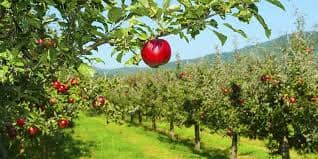She has just sold about 1200 boxes of tomatoes and more boxes are filling up. Plus her customers just like her tomatoes specifically. “I’m told that customers skip South Africa tamotoes in shops and pick mine because mine are often fresh,” said ‘Masontaha Dlamini, the former student of the National University of Lesotho [NUL].
Her journeny into farming is an inspiring one.
Like most Basotho, she didn’t quite give farming an attention when she was growing up. True, food was grown in her home for subsistence but it was nothing to write home about.
It was only a few years ago when she started giving some attention to agriculture. “At that time, I was giving a serious thought into starting my own business so farming came to mind. The more I learned about it, there more I realised I loved that kind of business,” she said. Fortunately, she has a husband who also loves farming and they formed a formidable team.
In her humble opinion, she sincerely thinks if you do it well, you can’t go wrong with farming.
“That is because in this kind of farming, you invest little, and you get a lot,” she said. “Plus when all has been said and done, people will always eat.” So the market, she thinks, is always in front of our eyes.
She has never had to struggle for buyers, “I’m experiencing a huge demand for my tomatoes everyday.”
These positives about farming do not mean it should be taken for granted. If you do, you are in for a surprise.
And she learned that the hard way over the years.
First they started with open agriculture where they grew crops outside, unprotected. They fetched water and irrigated with hand. That kind of cropping is possible but there are so many things to compete with, it can just suck the energy out of you.
First you contend with the insects—when you grow crops, those folks [insects] seem to get under the impression that you are inviting them for a feast. You will find from the smallest to the biggest not only visiting but staying in your gardens. Then you content with the sun and the wind. In as much as you work hard to fetch water, the sun and the wind are all to happy to pick the water away just as fast.
In time, they realised that unprotected farming was not worth it.
So they tried something else.
“We dipped into our pockets, bought two greenhouses, dag a borehole for water and tried again,” she said. They even bought drip irrigation system to save water. Spending their own money showed that they were serious about what they were doing.
“But then, one of the greenhouse structures were blown away by the wind.” Within no time, all kinds of insects were in for a hearty feast. Left with one structure, they were discouraged and stopped farming for a while.
Then there was a lifeline.
In the form of SADP.
They call it Smallholder Agricultural Development Project. Whoever came up with the idea of that project should be thanked 1000 times, but he who funds it, a million times. Simply put, SADP is changing lives and we feel it as we talk to its beneficiaries.
Another beautiful thing about SADP is that it helps those who are trying (e tsosa moketa o itekang).
In other quarters, every Jack and Joe registers as a farmer the moment they start hearing that a fertilizer or seeds are going to be distributed [ba re ba batla seoa-holimo]. With SADP, you have to demonstrate that you are already doing something and she and her hubby took advantage of that.
They were not disappointed.
With an infusion of money from SADP, they tried again. This time they had some money to buy three shade-nets and dig another hole.
It was a proverbial shot in the arm.
Having grown wiser with from past failures [in business, Failure + Persistence = Success], they were back in business, now working earnestly to produce food.
They found that shade-nets were good not only for protecting crops from the sun but they were also preventing insects from starting a feast yet again. “Those insects that do make it through the nets’ holes are easy to control with pesticides and they prove no match because they don’t come as an army.”
Of course she grows other crops too, including cabbages and green pepper.


